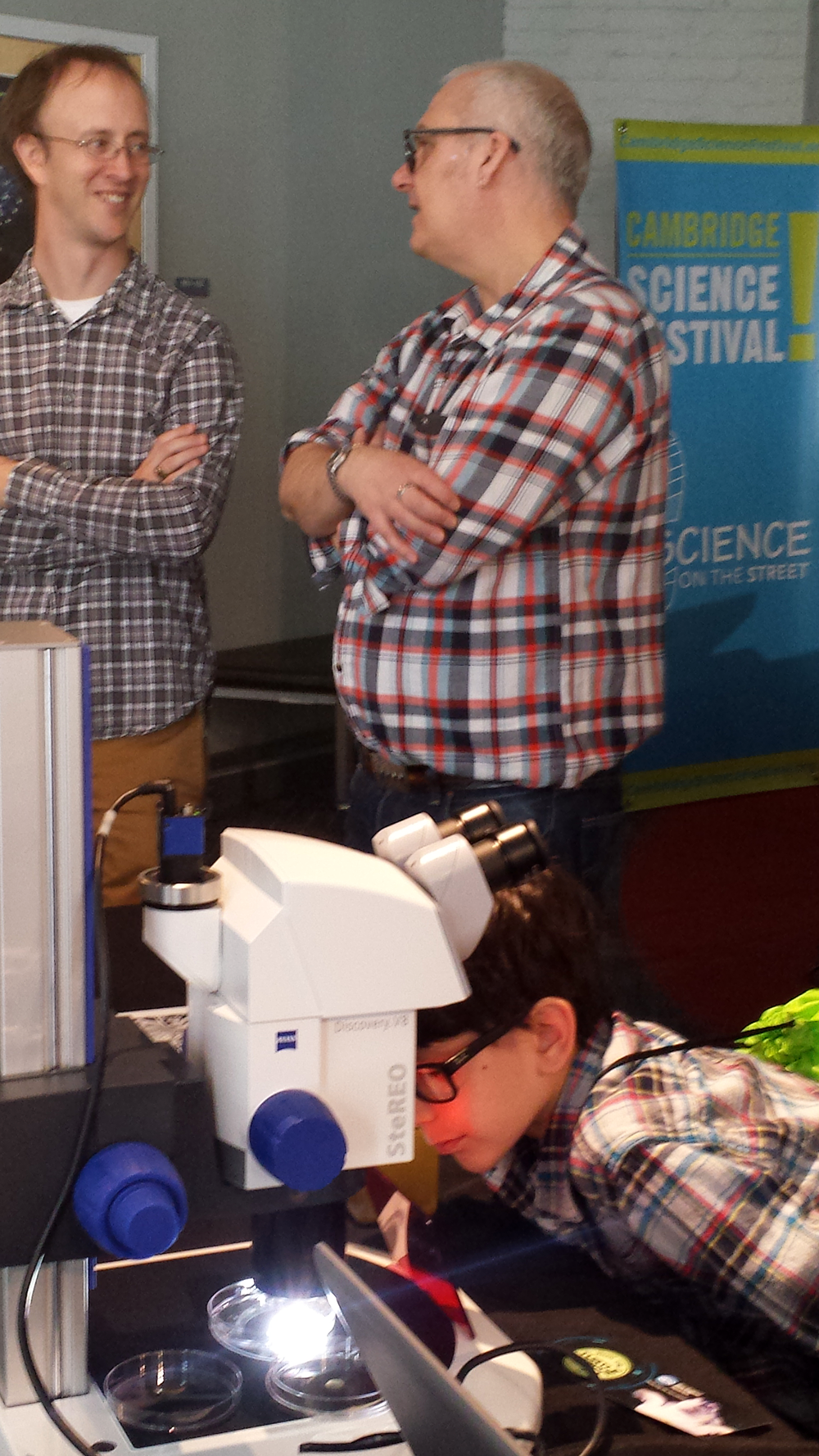MIT Stories
-
MIT, MIT EAPS | September 4, 2013
Will the new global mercury treaty be effective?
MIT researcher Noelle Selin assesses the challenges of implementing the first global mercury treaty. -
MIT News | August 30, 2013
How to get fresh water out of thin air
In some of this planet’s driest regions, where rainfall is rare or even nonexistent, a few specialized plants and insects have devised ingenious strategies to provide themselves with the water necessary for life: They pull it right out of the air, fr... -
MIT News | August 19, 2013
Large-scale irrigation
This article appears in the Spring 2013 issue of Energy Futures, the magazine of the MIT Energy Initiative. Subscribe today. Overview An MIT team is providing new understanding of the growing interconnections among three critical resources: energy, wat... -
MIT News | August 19, 2013
MIT alum receives Navy award
Rear Adm. Thomas J. Eccles NE, SM ’90 was recently recognized with the 2012 Rear Admiral Wayne E. Meyer Memorial Award from the United States Department of the Navy as part of its Acquisition Excellence Awards. He was awarded this honor for “superb... -
MIT Sea Grant | August 15, 2013
Rapid Assessment Surveys keep score on marine species. Brown Bag Seminar with Judith Pederson, MIT Sea Grant Advisory Leader
Date: Wednesday, September 11, 2013 Time: 12:00 - 1:00 pm Location: MIT E38-300 Bring your lunch and learn about rapid assessment surveys of marine species in our coastal waters, and on floating docks and outcroppings. Preliminary findings from the Au... -
MIT News | August 14, 2013
Ocean engineering students set stage for a smarter fleet
The U.S. Navy’s Arleigh Burke (DDG-51) class of destroyers consists of 62 active vessels that collectively carry 20,000 personnel and burn 4.4 million barrels of fuel each year. Since the first hull was commissioned in 1991, there have been two major... -
MIT Sea Grant | August 8, 2013
Water Quality – A Stakeholder Science Forum
Date: Tuesday, September 24, 2013 Time: 10:00 - 12:30 pm Room: E38-300 (292 Main St., Cambridge) Open to the public. Each speaker presents their scientific findings, then answers questions from the audience. Please join us in the E38-300 conference ... -
MITgcm News | August 7, 2013
Looping the loop in the Gulf of Mexico
This month we focus on several recent papers that have used MITgcm and its adjoint to perform state estimates and explore its ocean forecasting capabilities in the Gulf of Mexico. -
Featured Stories, MIT - The Darwin Project | August 1, 2013
A Ride on the 800,000-Year Roller Coaster
Related topics | Microbial Ecology | Biogeochemical Cycles -
MIT News | July 29, 2013
Chisholm awarded the Ramon Margalef Prize in Ecology
The government of Catalonia, an autonomous community in Spain, has announced that Sallie (Penny) Chisholm has been selected to receive this year’s Ramon Margalef Prize in Ecology. The prize, named for a distinguished Catalonian scientist and founding... -
MIT News | July 29, 2013
Winners and losers in a warming ocean
Phytoplankton — small plant-like organisms that serve as the base of the marine ecosystem — play a crucial role in maintaining the health of our oceans by consuming carbon dioxide and fueling the food web. But with a changing climate, which of thes... -
MIT - The Darwin Project | July 24, 2013
On the potential role of marine calcifiers in glacial-interglacial dynamics
A schematic overview of the sequence of events throughout a calcifer-alkalinity cycle Ice-core measurements reveal a highly asymmetric cycle in Antarctic temperature and atmospheric CO2 over the last 800,000 years. Both CO2 and temperature decrease over 100,000 years going into a glacial period, then rise steeply over less than 10,000 years at the end of a glacial. There … Continue reading On the potential role of marine calcifiers in glacial-interglacial dynamics -
MIT News | July 16, 2013
Finding the keys to boiling heat transfer
A team of MIT researchers has succeeded in carrying out the first systematic investigation of the factors that control boiling heat transfer from a surface to a liquid. This process is crucial to the efficiency of power plants and the cooling of high-p... -
MIT News | July 15, 2013
Phytoplankton social mixers
Tiny ocean plants, or phytoplankton, were long thought to be passive drifters in the sea — unable to defy even the weakest currents, or travel by their own volition. In recent decades, research has shown that many species of these unicellular microor... -
MIT Sea Grant | July 13, 2013
DOWNLOAD A FREE COPY: MIT Sea Grant College Program: Where ocean science meets cutting edge technology
-
MIT Sea Grant | July 11, 2013
MIT SEA GRANT’S FOURTH ANNUAL OCEAN ENGINEERING EXPERIENCE FOR HIGH SCHOOLERS IS UNDERWAY!
The challenge this year involves the design and construction of a remotely operated vehicle (ROV), modeled after the Sea Perch. The students receive special instruction from MIT Sea Grant staff and guest lecturers, who impart vital information on all a... -
MIT, MIT EAPS | July 8, 2013
Bigger Storms Ahead
With global warming, a study by Kerry Emanuel finds, tropical cyclones may become more frequent and intense. -
MIT News | July 7, 2013
Buckling up to turn
Bacteria swim by rotating the helical, hairlike flagella that extend from their unicellular bodies. Some bacteria, including the Escherichia coli (E. coli) living in the human gut, have multiple flagella that rotate as a bundle to move the cell forward... -
MIT News | June 17, 2013
Holding the salt
“Water, water everywhere, nor any drop to drink,” English poet Samuel Taylor Coleridge wrote of the anguish felt by sailors on being surrounded by undrinkable water when faced with thirst. More than 200 years later, environmentalists have adopted C... -
MIT Sea Grant | June 12, 2013
MIT Sea Grant- funded research featured in MIT News






